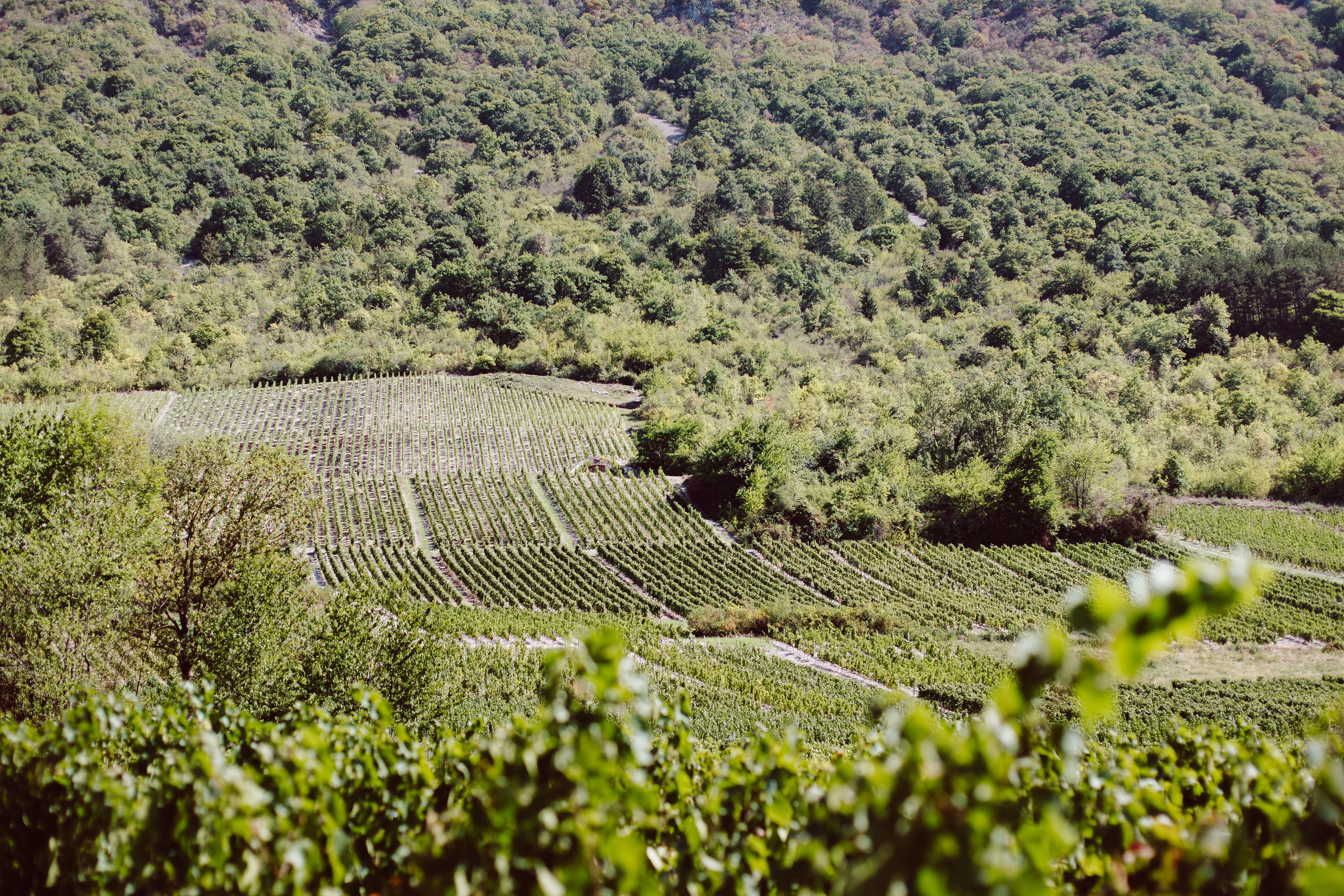Côte-Rôtie PDO
Côte-Rôtie: an appellation in the Rhône Valley that makes you dizzy
It is in the north of the Rhone valley, on the right bank of the river, that a small appellation of one of the oldest vineyards in France unfolds. As prestigious as it is vertiginous, the AOC Côte-Rôtie surprises as much by its high quality red wines as by its steep slopes. Here, as in all the northern part of the Rhone Valley vineyard, Syrah dominates and gives all its character to a powerful and elegant wine.
General presentation of the appellation
The Côte-Rôtie appellation is produced in the Rhône, in three communes on the right bank of the river, opposite Vienne. About thirty kilometres south of Lyon, the vineyards offer a breathtaking spectacle. Since Roman antiquity, it has been cultivated on thin, steep terraces, on hillsides that rise to between 140 and 320 metres in altitude. Here the land is so steep, sometimes sloping more than 60%, that stone walls support the soil. This particular situation offers an exceptional climate to the coast, which benefits from a sunny climate that gives it its nickname of "roasted". If it is at the origin of great red wines, it also almost caused the loss of the vineyard, so difficult to work. But since the 1970s, this small vineyard of about 280 hectares has been undergoing a revival, as winegrowers have not been impressed by the extreme relief.
A neighbour of the Condrieu appellation, the no less famous Côte-Rôtie vineyard stretches over 3 km in length, on the communes of Ampuis, Saint-Cyr-sur-le-Rhône and Tupin-et-Semons. We usually distinguish two terroirs: the Côte Brune to the north and the Côte Blonde to the south. However, the appellation counts 73 classified places and more than 100 producers. This allows for a great diversity of wines, which can include white Viognier alongside Syrah, provided it does not exceed 20%.
Characteristics of Côte-Rôtie wine
When young, Côte-Rôtie has a deep garnet or ruby colour. As it ages, its colour gradually turns to tile. This dark colour is characteristic of Syrah-based wines. As for its nose and aromas, the côte-rôtie AOC wine is complex, fine and elegant. When Viognier complements Syrah, this white variety brings finesse and femininity. It tends to have aromas of red fruit, such as redcurrant, strawberry or cherry, and even black fruit, such as blackcurrant, blackberry or blueberry. In the presence of Viognier, floral notes, most often violet, emerge. Spices, vanilla, notes of undergrowth, leather and smoked bacon can also be detected on tasting, especially when the wine has evolved.
A côte-rôtie wine lends itself to ageing. It fully develops after 15 years of ageing. It is then characterised by velvety tannins, richness and roundness on the palate as well as a certain aromatic power.
How to taste a Côte-Rôtie
It is advisable to drink Côte-Rôtie at room temperature, at around 17-18°. Its strength goes very well with game; doe, quail, roe deer, hare, wild boar, pheasant... are dishes that go perfectly with Côte-Rôtie red wine, as do offal. Red and white meats as well as poultry are also recommended. Cheeses such as Bleu d'Auvergne, Brie or Camembert, Epoisses or Rigotte de Condrieu also go well with Côte-Rôtie
Laissez-vous tenter... par les autres appellations !
Le vignoble
